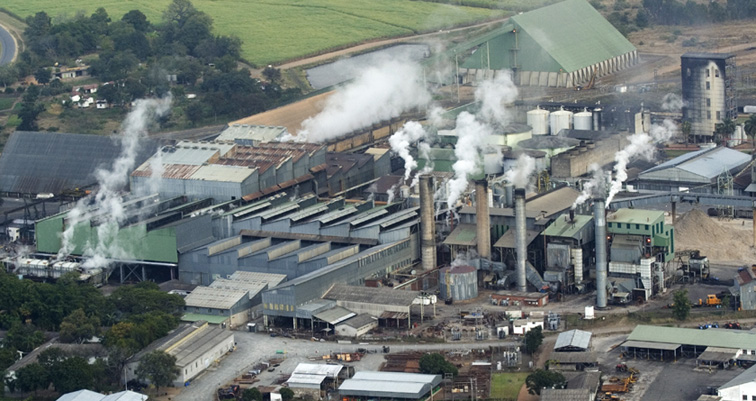
Hippo Valley Estates Limited says it has ethanol production capacity of 41 million litres per month and has applied for a licence to supply the local market.
BY TATIRA ZWINOIRA
The country requires 50 million litres of petrol per month. Of that, 7,5 million litres will be ethanol under the mandatory E15 blending ratio.
Speaking at the company’s annual general meeting yesterday, managing director Sydney Mtsambiwa said the company was supplying specific market segments.

“Our installed ethanol production capacity is around 41 million litres and as we speak right now we are already producing anhydrous ethanol, but we are supplying specific market segments with their requirements,” Mtsambiwa said.
“Clearly, ethanol does provide us with an alternative business line and is something that we have been working on for the past couple of years so it is not new to us.”
Hippo Valley said the unavailability of cash in the economy was constraining the uptake of its products. This, Mtsambiwa said, was preventing the company from getting cash.
- Chamisa under fire over US$120K donation
- Mavhunga puts DeMbare into Chibuku quarterfinals
- Pension funds bet on Cabora Bassa oilfields
- Councils defy govt fire tender directive
Keep Reading
This has forced the company to look into producing ethanol which is also another byproduct of sugar cane as a way of generating another source of revenue to compensate for the lost ground as there was a high demand.
Hippo Valley is currently engaging local authorities to get licencing to start production of ethanol.
Mtsambiwa said the only remaining issue was concluding getting the necessary regulatory authority to be allowed to produce ethanol for the local market which they wanted to readily exploit.
“As soon as we can get our way around the regulatory side of issues, then we will be able to ramp up operations to meet specific demand,” Mtsambiwa said.
In the financial year ended March 31 2015, the company posted an operating profit and net profit of $16,2 million and $7,3 million respectively. This was down from $19,1 million and $9 million respectively in the prior period in 2014.
This was largely due to the significant recovery in the local market sales volumes at higher returns compared to realisations from the depressed European Union exports.
Total revenue came in at $146, 8 million an increase of 8% from $136,1 million over the same timeframe last year.
Cash generated from operations was down by 39% at $17,8 million from $29, 1 million during the same period last year.
Sugar production decreased by 5% to 228 000 tonnes from 239 000 tonnes in 2014 as a consequence of no cane deliveries from Green Fuel, an independent ethanol producer in Chisumbanje.











